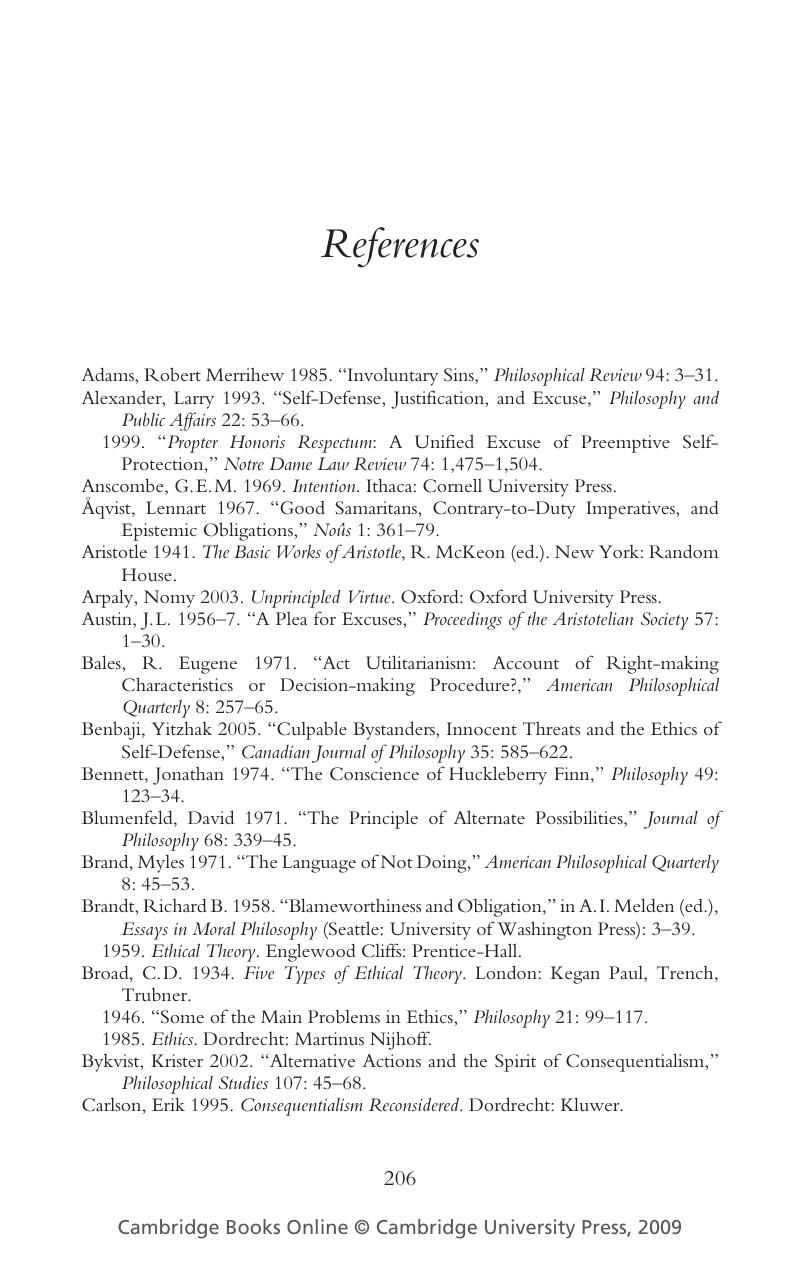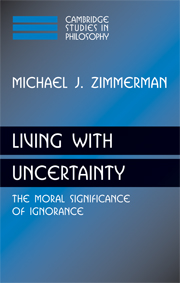References
Published online by Cambridge University Press: 22 September 2009
Summary

- Type
- Chapter
- Information
- Living with UncertaintyThe Moral Significance of Ignorance, pp. 206 - 213Publisher: Cambridge University PressPrint publication year: 2008



